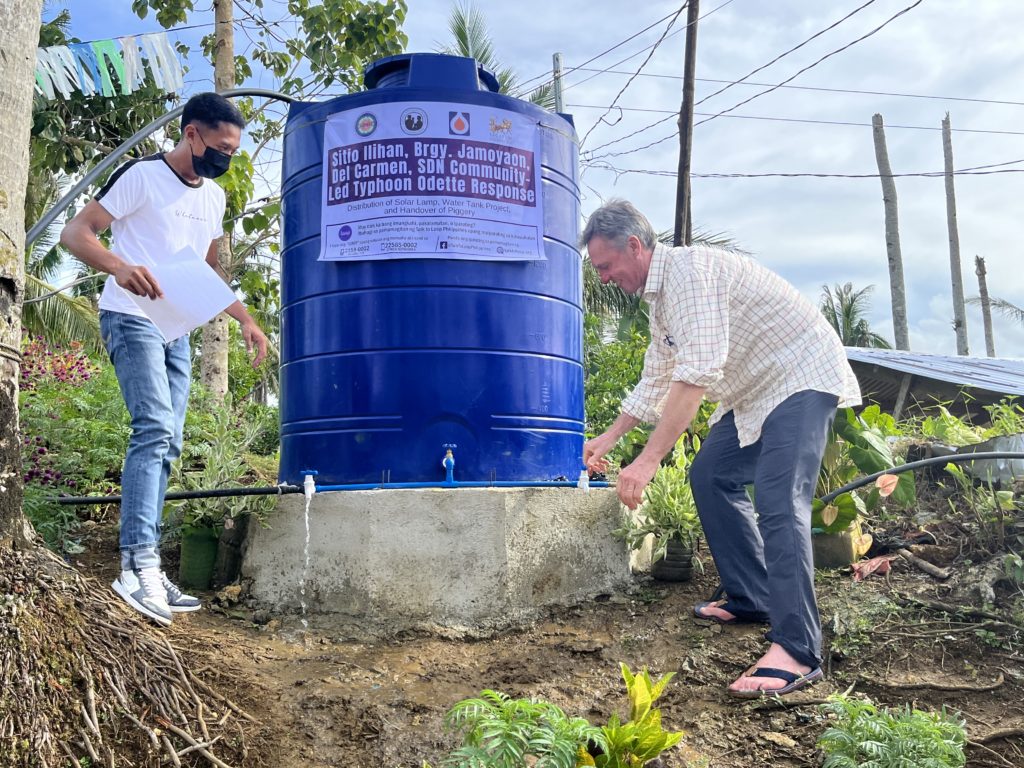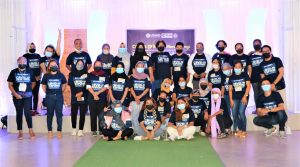Capturing learning from a Typhoon Odette Community-led Humanitarian Action

Ilihan, Matam-is, Del Carmen, Surigao del Norte
Jayson Mullet, 32, a businessman and resident of Ilihan, Del Carmen, Surigao del Norte, pointed to the ceiling of their house. “We used to have a dos andanas (two storey house). Typhoon Odette cut our house in half, beheaded it.”
His friend and colleague Joey Curada told of the same experience of destruction when Rai/Odette, traveling at supertyphoon speed upon landfall, pass through their community.
But when the offer of cash assistance from ECOWEB through a Community Led Response, the two led the community in developing a project plan: a water supply that will answer a gap in the community years before Odette even.
Why not food? Why not shelter repair?
Joessy said if they can save money from buying water, they can have funds for their food and shelter repair.
Ilihan is few kilometers from main barangay Matam-is, and does not have connection with a water supply. For years, they spend money on buying mineral water not just for drinking but for taking a bath, washing their clothes and dishes.
For years, they have approached the barangay government, the municipal government, and even local politicians. There were promises but unfulfilled. Being a small community, they were not a priority, and development projects usually focused on roads and barangay covered courts.
“It is very difficult for our community of 40 families to plant anything around the house. We don’t have water,” Joey narrated.
Jayson expressed his belief that Ilihan has made the right decision in spending the cash grant for water supply, “Just imagine. If we have guests. We need to buy more gallons of mineral water because they need to take a bath or use to comfort room. When we have fiesta, gallons and gallons were needed for cooking, washing dishes, and cleaning the house.”
Those could have been money saved for their children. They said, and the neighbors agreed. “Without water supply, everything is more expensive – car washing, hygiene needs of children, etc.”
Under the supervision of a local official who is experienced in the water business, they decided to invest in a water tank and in high volume submersible water pump. The cash grant was just enough for the purchase of the two items.
The leaders recognize their limitations in doing this community led response.
- They lack technical expertise in operating a submersible water pump. They need a technical capacity building to ensure that the equipment will not be damaged from misuse and lack of maintenance.
- They still have to come up with organizational policies on the use of the water system. How much should be allowed per family per day? How much should each family contribute each month to cover cost of electricity and maintenance? They planned a community meeting to thresh this out.
- They have not yet coordinated with the barangay local government unit. They recognize the danger of this because of the water system law in the Philippines.
This is Presidential Decree No. 1067, otherwise known as the Water Code of the Philippines. The Code covers underground water, water above the ground, water in the atmosphere and the waters of the sea within the territorial jurisdiction of the Philippines. The law requires a water permit before a community can use a mechanized water distribution system.
This project is still a work in progress, and further accompaniment is needed. But the enthusiasm, the genuine intent and the cooperation of the members are solid foundations for a sustainable recovery project.


